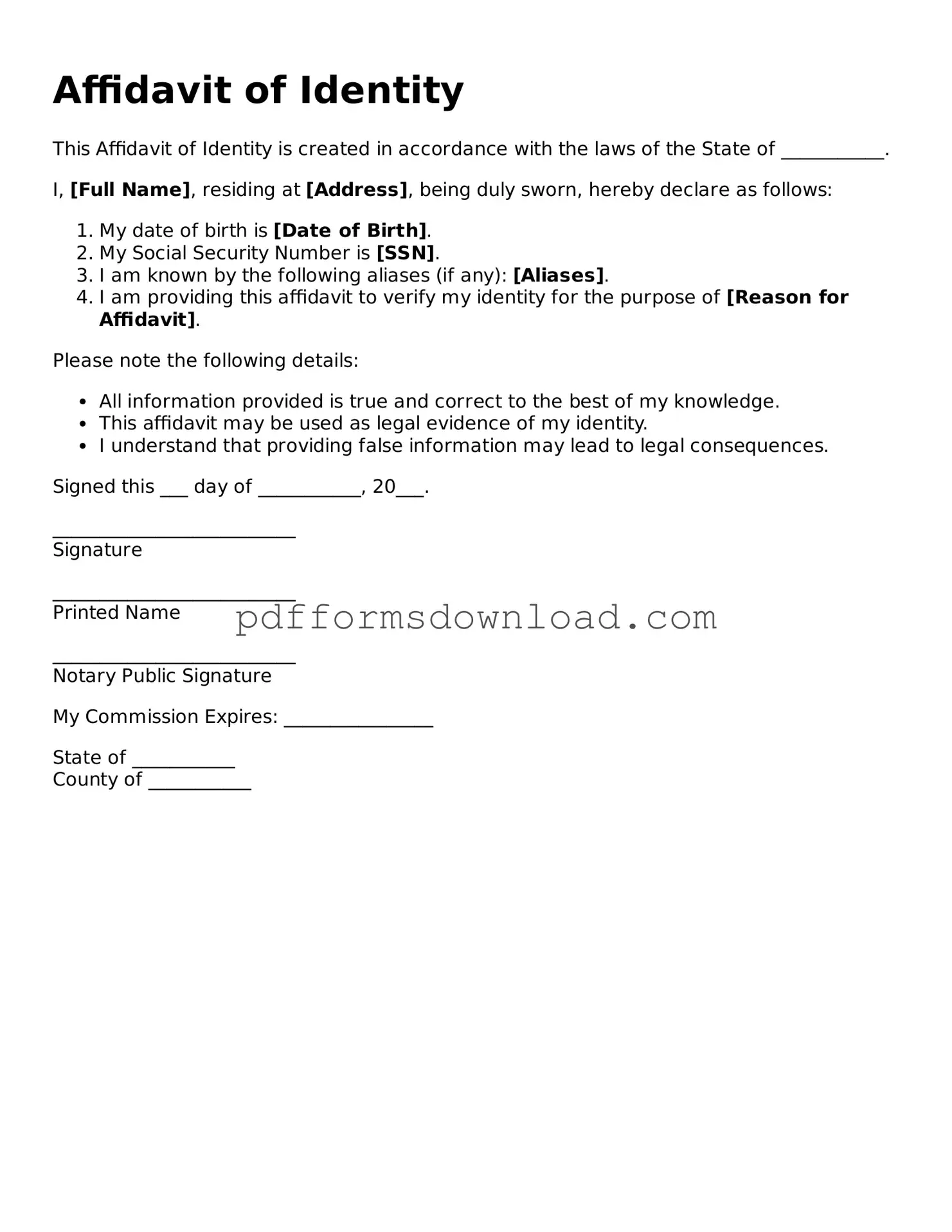What is an Affidavit of Identity?
An Affidavit of Identity is a legal document that confirms a person's identity. It is often used in situations where an individual needs to verify their identity for legal, financial, or administrative purposes. This form serves as a sworn statement, affirming that the information provided is true and accurate.
Who needs to complete an Affidavit of Identity?
Anyone who needs to verify their identity may be required to complete this form. Common scenarios include applying for a passport, opening a bank account, or resolving issues related to identity theft. If you are facing challenges in proving your identity, this affidavit may be necessary.
What information is required on the Affidavit of Identity?
The form typically requires personal details such as your full name, date of birth, and current address. You may also need to provide identification numbers, such as a Social Security number or driver's license number. Additionally, a statement affirming the truthfulness of the information is usually included.
How do I complete the Affidavit of Identity?
To complete the affidavit, fill out all required fields with accurate information. Make sure to review the form for any errors before signing. Some jurisdictions may require the affidavit to be notarized, so check local regulations to ensure compliance.
Do I need a witness or notary for the Affidavit of Identity?
In many cases, a notary public is required to witness your signature on the affidavit. This adds a layer of authenticity to the document. However, some situations may allow for a witness instead. Verify the requirements for your specific use case.
Can I use an Affidavit of Identity for multiple purposes?
Yes, the Affidavit of Identity can often be used for various purposes, such as opening bank accounts, applying for government benefits, or resolving identity theft issues. However, ensure that the affidavit meets the specific requirements of each situation.
Is there a fee to file an Affidavit of Identity?
Filing an Affidavit of Identity itself typically does not incur a fee. However, if notarization is required, there may be a charge for that service. Additionally, some institutions may have their own fees associated with processing the affidavit.
How long is an Affidavit of Identity valid?
The validity of an Affidavit of Identity can vary depending on the purpose for which it is used. Generally, it remains valid as long as the information provided is accurate and has not changed. Always check with the requesting entity for their specific guidelines regarding validity.
What should I do if my identity changes after submitting the affidavit?
If your identity changes, such as a name change or a change in address, you should submit a new Affidavit of Identity. Keeping your information up to date is crucial to ensure that your identity is accurately represented in any legal or administrative matters.
Where can I obtain an Affidavit of Identity form?
You can typically obtain an Affidavit of Identity form from various sources, including online legal resources, government websites, or local legal offices. Ensure that you are using a form that is appropriate for your specific needs and jurisdiction.

